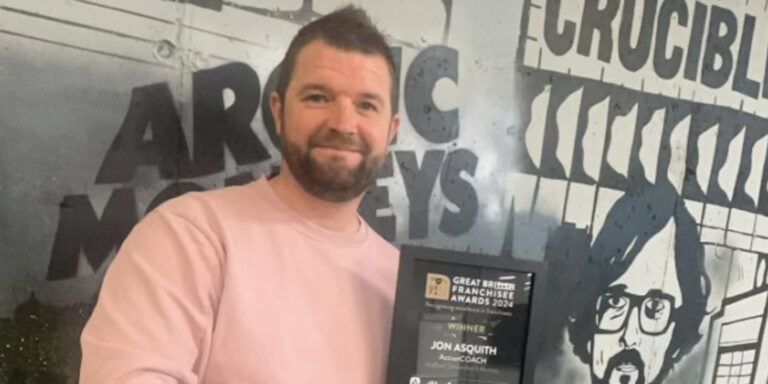Valuation of Franchise Resales
Previous articles in this series have explored the concepts behind a structured franchise resale process and the life cycle of franchisees through to the planning and documentation stages of a sale. Now, Derrick Simpson, Managing Partner of Franchise Resales Limited, explains how to establish a value for the business and agree the purchase price for the prospect that will become your new franchisee
Establishing a value and asking price for a particular business is surprisingly straightforward and is very much about clarity. Challenges arise when emotions take over from logic. For franchisees, the shock arising from not having their expectations managed through exit planning and a structured resale process can mean they are disappointed by the valuation they receive. This may lead to conflict with the franchisor as well as the potential for internal stresses.
The well-established truism ‘a business is only worth what a purchaser is prepared to pay for it’ is of course completely accurate, if a little glib. The skill is to ensure the financial presentation of the franchisee’s business is as clear and simple as the physical aspects described in previous articles. If the business is easy to understand financially, without hidden issues, a purchaser will be more confident. They will see that the underlying profit the business is generating can reasonably be expected to continue under their ownership. It is this sustainable operating profit that establishes the value of a particular business.

Summing up
It is quite possible for two franchises within the same franchisor’s system with similar turnovers to sell for very different sums. This situation occurs because the costs within individual businesses often differ. Staffing levels, staff salary costs, costs of sales, rent and other premises all vary between individual operations. The simpler the operation the easier it is to have similar selling values, but once staff, premises, purchases and production enter the equation, wide variations can occur.
The objective of the financial analysis is to establish the underlying profitability of a franchisee’s business. This will exclude the owners’ drawings, pension contributions and any personal ‘lifestyle’ charges that may be hidden within the accounts. These are personal to the owner and are not costs that transfer to a purchaser of the business. It is also legitimate to adjust the accounts for any exceptional one-off items that are included, but will not be expected to be an on-going cost. Adjusting the accounts of a franchisee in this fashion will establish just what it is that a purchaser is acquiring.
Having established this transferable operating profit, ideally covering at least the last three years to demonstrate the figures are robust, most accountants apply a multiple to this base figure to establish a value for the business. The multiple applied varies according to the industry sector. For example, a franchise where the majority of sales leads are centrally generated through the franchisor or provided through national accounts contracts will achieve a lower multiple than one where the franchisee has developed local contacts and a repeat income stream. This is a factor of risk for the purchaser as locally generated sales leads and regular customers are likely to be more sustainable than those from a national feed.
Further assessment
Other factors that will impinge on valuation calculations are items such as having a single major client contributing a high percentage to the sales, which may be at risk with the transfer of the business and a different owner taking over.
An area often overlooked by franchisees preparing to sell is the management structure of the operation. When a franchisee becomes indispensable to the running of the business it will be harder for a purchaser to take over than one where a manager or management team is in place. Also if a franchisee employs family members to operate the business, a valuer and the purchaser may well consider this a risk because there is a clear danger of family not remaining within the business once the sale is complete. All of these factors can and should be addressed well before the business is made available for sale and will always be part of the ongoing exit planning processes all franchisors should implement.
No one accountant will value a business exactly the same as another but the purpose of valuing the business is to get in the right ‘ball park’ to enable negotiations over the initial asking price to have a reasonable chance of success. Within Franchise Resales Limited we always use an independent firm of accountants who have built up a database of franchise valuations over time and can authoritatively establish the various multiples, which will be applied to different business sectors. Many franchisors fail to capture the detail of successful and unsuccessful franchise resales that occur within their system. This causes them to miss out on the opportunity to clearly demonstrate to their current franchisees what they should expect as an agreed sale price at particular performance and cost levels.
My experience of the last 20 years in the franchise industry is that achieved multiples of transferable operating profit were falling, but for some time now have remained static. The numbers we achieve in Franchise Resales Limited are between 1.5 and 3.5 times the transferable operating profit figure depending on industry sector. There will always be exceptions to the rule as there are trends and fads, but for the most part this is the level most franchisees can expect to achieve.
Sold…?
Having established a realistic value for the business the next step is to set the asking price. This will usually be higher than the valuation on the grounds that very few people, if any, will offer more for a business than is asked. It is however folly to seek a huge premium over the established value because simply, in the real world, it will not be achieved. All that will happen is prospective purchasers will waste time, money and patience. The selling franchisee will become disenchanted and negotiations will fail. A true lose lose situation.
Some franchisees may argue that an opportunity premium should be paid as there is still a large growth potential in an unexploited territory. Another way of looking at this is “I couldn’t be bothered to develop the territory, you have a go” and generally this is how most purchasers will approach any suggestion of opportunity premiums.
Why planning is so important
At the start of this series of articles I stressed the need for exit planning and a structured approach and this has been a theme throughout. Resales negotiations with a price expectation well in excess of a realistic, calculated valuation are doomed to fail and this will result in precious prospective purchasers being lost. In the next article we will explore sourcing purchasers for franchise resales and discussing why and how they may differ from the ones applying for a new franchise.



